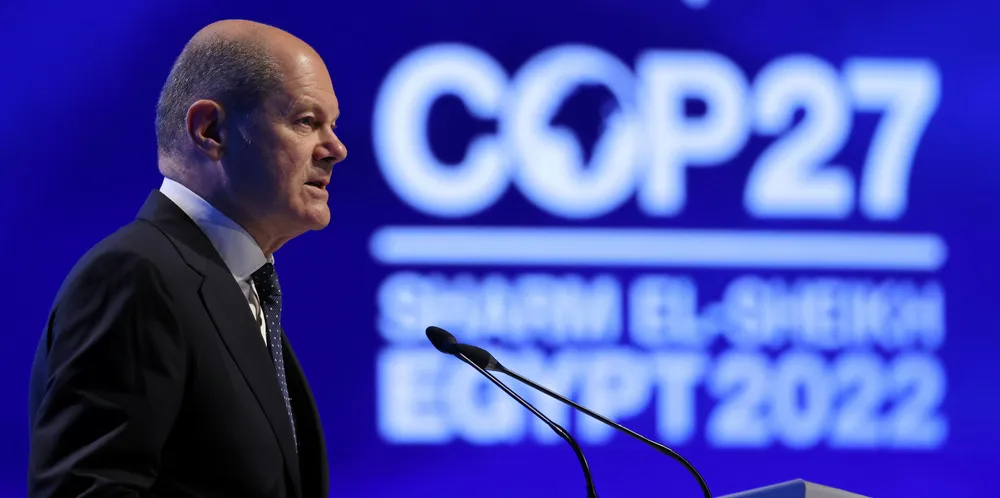'Must do better' | German renewables' sobering verdict on Scholz's first year
On the anniversary of its 'traffic light' coalition coming to power with a pledge to turbocharge the Energiewende, renewables groups are warning that green power expansion is still too slow, writes Bernd Radowitz

The wind and wider renewables sector gave a sobering verdict on the government of Chancellor Olaf Scholz, which this week marked a year in power but has only partially lived up to its promise to turbocharge Germany’s Energiewende – or energy transition.
Scholz’s somewhat odd coalition between his own Social Democrats, the Greens and the free-market Liberals enacted new legislation and regulations on renewables at previously unseen speed, both in order to reach 80% of green power by 2030 (from just 42% last year) and to compensate for curtailed Russian energy imports in the wake of the war on Ukraine and EU sanctions.
The ‘traffic light coalition’ – named after the governing parties' red, yellow and green colours – within its first year has achieved more than the previous government of former Chancellor Angela Merkel, but renewables expansion targets are still at risk as permitting remains too slow, wind energy federation BWE said.
“According to the federal states themselves, the average duration for approval procedures is around two years, and in seven federal states it is even longer,” BWE president Hermann Albers said.
“Operators know of [permitting] procedures that average four to six years. We're far from a target of six months given during the election campaign.
“An unleashing is urgently needed in order to finally solve the long-known problems in permitting.”
The current speed of the onshore wind expansion is running at only 27% of what is needed to reach 2030 targets, the German institute for economic research (DIW) said in a new study, the BWE pointed out. In offshore wind, the velocity is even less, at 6% of the required speed to reach goals.
The BWE added that as many projects won tenders more than two years ago – before the current rapid rise in prices – in increasing number of them are not being built as they’re not economically viable anymore.
Climate obstacle course
Germany’s renewable energy federation BEE, which represents the wider green power sector, said the initially clear climate protection agenda of the new government has turned into an “obstacle course”.
“That is understandable in view of the energy crisis, as many difficult decisions had to be made under great time pressure,” BEE president Simone Peter said.
“But fossil-nuclear interim solutions must not manifest themselves. Now we have to make adjustments and take a clear look at the energy transition.”
Peter said that while the government is trying to take measures that the previous administration ignored, it must avoid new mistakes.
“The planned electricity price brake will be the next damper for innovation of the industry and thus the expansion of renewable energies in the short and medium term, if it is not comprehensively improved by parliament. That has already cost a lot of trust.”
Peter also warned that the new LNG terminals could create lock-in effects in the fossil sector.
Germany and Europe instead need to find an answer to the massive subsidies to the domestic renewables sector enshrined in the US Inflation Reduction Act and Asian economic strategies in the climate sector, she urged.
“Germany has competence, will and a lot of experience to shape the Energiewende. The traffic light [coalition] must now use this to bring the former pioneer forward again."
(Copyright)